What Can Go Wrong?
- Someone could experience a diving related condition, e.g. Decompression illness, Barotrauma.
- Someone could drown.
- Diver could be lost.
- Equipment could fail.
- Dive team including presenter may lack the necessary competence for the dive.
- Illness due to Exposure to weather e.g. hypothermia, sun stoke.
- Exposure to marine life.
- Seasickness.
Legal/���˿��� Requirements
- When diving in UK waters, the Diving at Work regulations and associated ACOPs should be followed.
- UK divers must have undertaken a HSE medical within the 12 months prior to the dive taking place.
- Where the ���˿��� is producing the production then the ���˿��� has to fulfill the role of 'Diving Contractor' and is required to meet all the requirements. See Recommend Links - HSE: Media diving projects, for further information.
Control Measures
Scuba Diving: The Dive Team
- Appoint someone competent to manage the diving operations; in the UK this would be a Diving Contractor from the ���˿��� Approved List.
- Check that the diving contractor has suitable insurance in place to cover the diving activities. Any liability waivers must be seen by ���˿��� insurance prior to the dive taking place.
- The diving contractor is responsible for providing a risk assessment and dive plan, this will include the emergency action plan.
- The diving contractor must appoint a diving supervisor, who is responsible for managing diving operations on the day and they do not dive. They must have experience of the type of diving that they are managing.
- The Diving Supervisor has complete authority over the diving operation.
- When working outside of the UK and the diving contractor is unfamiliar with providing risk assessments, please complete the ���˿��� questionnaire.
- All people in the water are to be in pairs. Unless specifically authorised by the diving supervisor.
- All members of the dive team must be fit to dive and notify the diving supervisor of any medical issues. It is a UK requirement that all members of the dive team must have a current HSE medical certificate.
- No member of the dive team that is pregnant is permitted to dive.
Competency
- Undertake reasonable checks on diver competency e.g. obtain copies of diver qualifications or verify with their certifying agency that they are certified for the level of diving intended.
- When operating in the UK all of the behind the camera divers must hold a HSE diving qualification.
- When operating outside of the UK, the dive team must be certified to at least CMAS 3 Star standard or equivalent (e.g. PADI Divemaster).
- Presenters: If presenting underwater forms the majority of work that the presenter undertakes then they must hold a diving qualification of at least CMAS 3 Star or equivalent.
- Where a presenter doesn’t normally work underwater and holds lower qualifications than CMAS 3 Star (or equivalent) or doesn’t hold any diving qualifications at all, then additional controls will need to be put in place to ensure their safety.
- Refresher sessions may be required for those diving that haven’t dived for some time, or are using new pieces of equipment that they are unfamiliar with.
- All divers must only dive within the limits of their qualifications.
- Where rebreathers are to be used, diver certification is specific to the rebreather model specified by the manufacturer.
- Seek further advice from ���˿��� Safety with regard to the suitability of qualifications.
- The Dive team should be competent in handling any specialist production equipment during the dive.
- Obtain confirmation that all equipment used in the diving operations is suitably maintained as per manufacturers’ recommendations or legal requirements.
Emergency Planning
- Oxygen as a first aid measure must be present on the surface and someone suitably trained in its administration must be available at all times.
- Suitably qualified first aid trained personnel are to be available on the surface at all times and shouldn’t have another important role that may take precedence.
- Two people are to be present on the surface to assist with recovering a diver from the water.
- A two person, two compartment compression chamber should be within 6 hours travel time of the diving operations unless: the dives carry a higher risk of Decompression Illness (DCI), or the dives are deeper than 50 metres or will entail more than 20 minutes in-water decompression, in which case the compression chamber should be on site for immediate use.
Free diving and Snorkelling
- Everyone in the water must have a means of achieving surface buoyancy.
- Throwing lines and buoyancy aids should be available to throw to a person in difficulty.
- There must be someone on the surface with lifesaving skills capable of mounting a rescue.
- Where surface dives are to take place, there must be an appropriate rescue plan in place, which would enable an unconscious person to be recovered from the bottom.
Division Specific Issues
- No division specific issues.
FAQs/Did You Know?
- You should allow a suitable amount of time before diving after flying. A general recommendation is 10 hours to allow suitable rehydration to take place.
- You should allow 24 hours before flying after the completion of diving operations.
- Some seasickness medications are not suitable for divers. Always check first.
- Some diving associations allow you to verify their divers qualifications via their website.
Useful documents
-
-
-
[Gateway]
-
[Gateway]
Recommended links
-
[Gateway]
-
-
-
-
-
Water topics
-
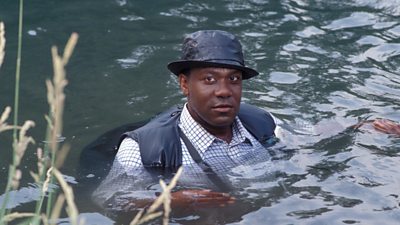
Water: Working On or Near
Guidance to working on or near water. -

Boats: Working on
A guide to working and filming from boats. -
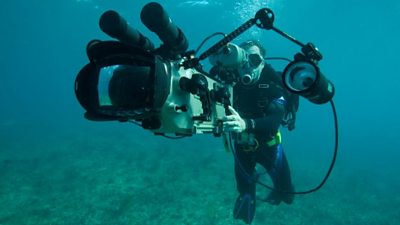
Diving
A Guide to Scuba Diving and free Diving in both open water and pools. -
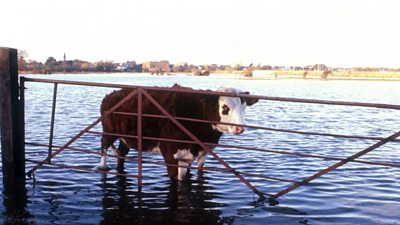
Floods and Coastal Surges
A guide to inland floods. -
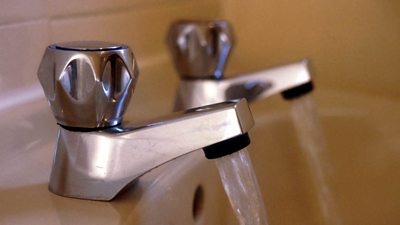
Legionella in Premises: Control of
This guidance provides an overview of how water systems are managed in premises to minimise the risks from the Legionella bacteria. -

Water and Waste Water Management
How to manage water and waste water arising from ���˿��� activities -
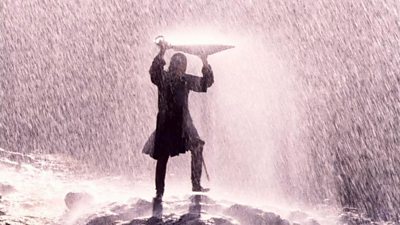
Weather
The ���˿��� regularly film and record outside, exposing staff to a variety of adverse and changeable weather conditions during the course of their work. Thunderstorms pose a particular threat to those working at height outdoors, or with raised masts on broadcast vehicles. -
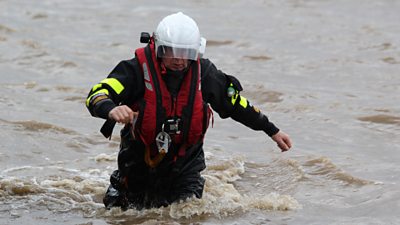
Wearing Your Life Jacket
Life jackets save lives and should be worn where there is a risk of entering the water unintentionally.
More from SSR
-
Your platform to record accidents, risk assessments, assurance monitoring and inspections
-
Safety Equipment Stores
Just one number to call: 020 3614 5155 -
���˿��� Safety Guidelines
An A-Z of ���˿���'s Health and Safety Guidelines -
Safety Advice Line: 0370 411 0464 Email: safety@bbc.co.uk
- A-Z of ���˿��� Safety Guidelines
- Accident Reporting and Investigation
- ���˿��� Health & Safety Policy
- Contractors (incl. vetted lists)
- Contributors
- Fire Safety
- Freelancers
- Independent Production Companies
- Risk Assessment
- Safety Alerts
- Safety Responsibilities
- Safety Training
- Sets & Premises Safety Guide
Events guidance - key links:
- Exhibitions
- General Guidance
- Indoor Location Recce Checklist
- Outdoor Location Recce Checklist
- Major Incidents & Emergency Planning
- Marketing and Promotional
- Noise Exposure
- Planning and Management
- Responsibilities
- Responsibilities Form
- Laser Lighting Effects
- Strobe Lighting
- Temporary Stages and Rostra
Health topics - key links:
- (���˿��� network only)
- Contributors Fitness to Participate
- Display Screen Equipment (DSE)
- (���˿��� network only)
- First Aid and Welfare on Location
- International Travel - Risks & Health
- Manual Handling
- Mental Health: ���˿���page
- (���˿��� network only)
- Personal Health and Wellbeing
- Pregnancy
- Psychological Trauma Support & Trauma Risk Management (TRiM)
- Tiredness and Fatigue
- Travel Health Contacts
���˿��� High Risk - key links:
- CBRN and Industrial Spills
- Covert Filming
- Crisis Management and Security Support
- Demonstrations, Protests and Crowds
- Disaster Coverage
- Door Stepping
- (���˿��� network only)
- (���˿��� network only)
- Public Order
- Safety Equipment Stores
���˿��� Journalism - key links:
���˿��� Productions - key links:
- Aerial Filming and Airfields
- Animals: Displaying and handling for performance
- Boats: Working on
- Children and Young People
- Driving
- Electrical Equipment and Systems
- First Aid and Welfare on Location
- Food Safety (Cooking and Catering)
- Remote Location Working
- Roads and Streets: Working by
- Security of Productions on Location
- Stunts
- Tiredness and Fatigue
- Unmanned Aerial Systems (UAS aka Drones)
- Vehicles: Recording in, from and around
- Working at Height: Mobile Elevating Work Platforms
- Working at Height: Tower Scaffolds
���˿��� Radio - key links:
- (���˿��� Network only)
���˿��� Security - key links:
���˿��� Sport - key links:
About this site
This site describes what the ���˿��� does in relation to managing its health, safety and security risks and is intended for those who work directly for the ���˿���.
It is not intended to provide instruction or guidance on how third parties should manage their risks. The ���˿��� cannot be held liable for how this information is interpreted or used by third parties, nor provide any assurance that adopting it would provide any measure of legal compliance. More information
Some links on this site are only accessible when connected to the ���˿��� network
Search by Tag:
- Tagged with Water Water
